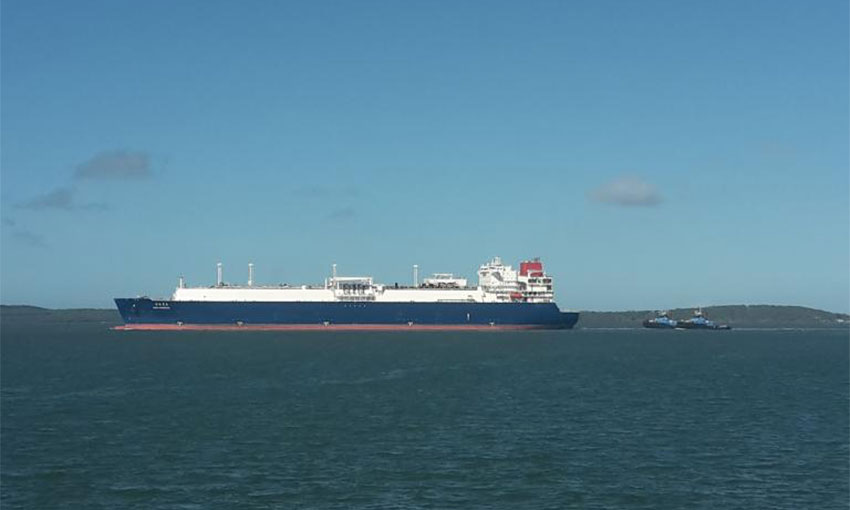ELECTRO-mechanical problems that saw an LNG carrier block a key Gladstone export berth for over a week last November cost the Asia Pacific LNG consortium sales of three cargoes that could not be loaded.
Sinopec’s 174,100 cbm CESI Qingdao, owned by Sinopec along with MOL and Cosco, could not be moved from APLNG’s Curtis Island berth due to failure of all four generators. Under AMSA detention it was eventually removed to anchorage on 1 December in an eight-hour manoeuvre requiring eight tugs and three pilots.
APLNG 22.5% shareholder Origin Energy this week reported December quarter production was 4% lower than the prior quarter “due to unplanned commercial turndown” caused by the CESI Qingdao incident. There were fears the liquefied gas already loaded on the vessel could revert to its natural form, causing a catastrophic event; production at the ConocoPhillips-operated plant had to be wound back as storages were full.
Among vessels delayed by the dead ship were sisterships CESIs Gladstone, Behai, Wenzhou, Lianyunggang and Tianjin which were refused permission to enter port until AMSA investigated and approved.
CESI Qingdao finally departed the Gladstone northern anchorage on 24 December, bound for Tianjin.
On 3 January AMSA banned CESI Qingdao from Australian waters for 180 days.
“For several weeks, AMSA worked with the master and operator whilst extensive repairs to the ship were carried out. Notably, four generators required repairs, only one of which was repaired after being completely rebuilt under the supervision of the engine manufacturers,” AMSA said. “The vessel was towed overseas to China for repairs.
“The response of the master and ship managers throughout the repair process necessitated stronger compliance action from AMSA.”
Compared to the December quarter of 2022, APLNG revenue decreased 25%, while it rose 1% compared to the prior quarter. APLNG is owned 22.5% by Origin, 25% by Sinopec and 47.5% by ConocoPhillips.

